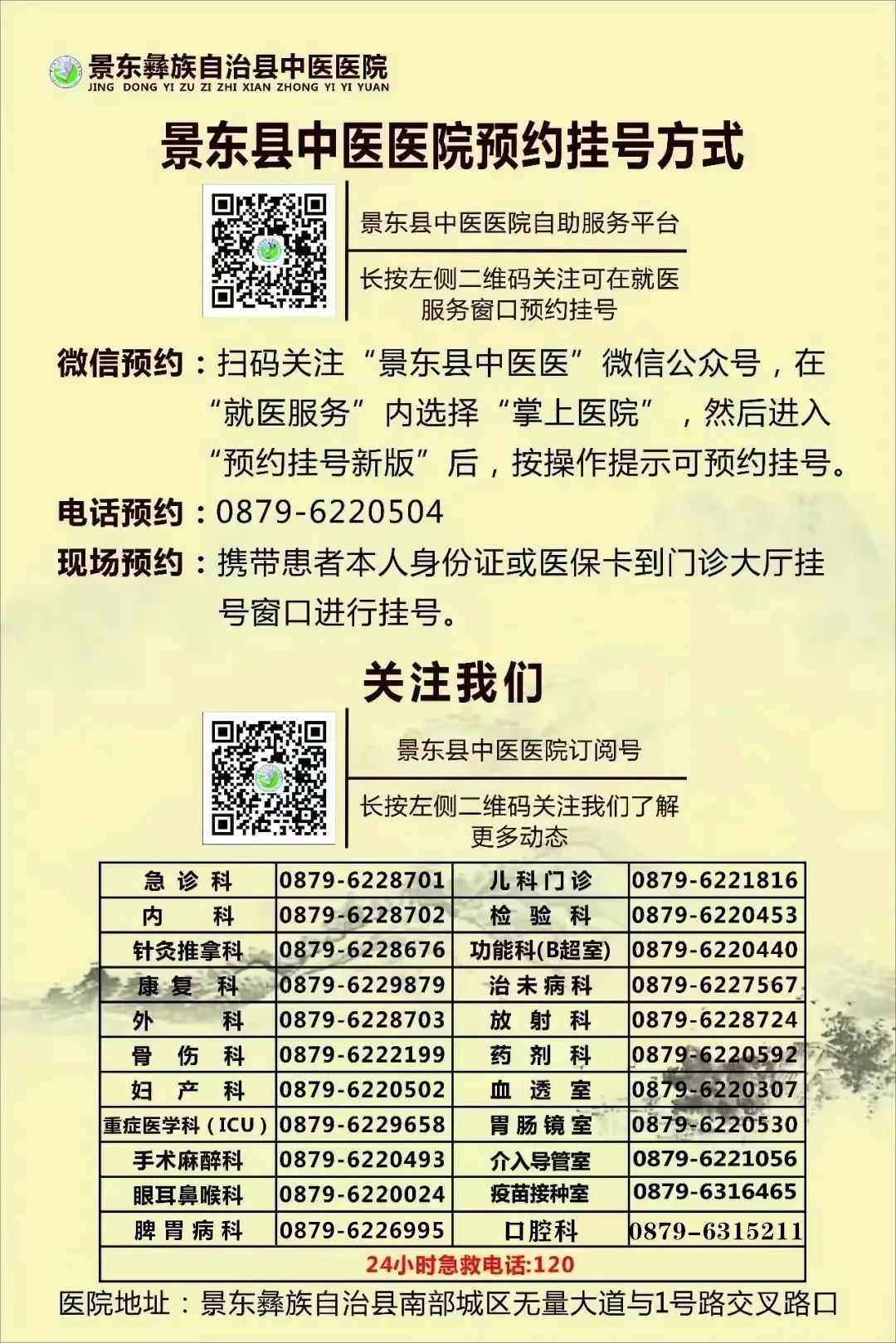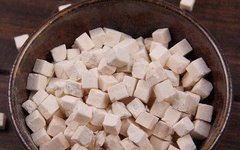
Click the blue words to follow us

Inheriting the essence of Traditional Chinese Medicine (TCM) and spreading TCM culture
Poria (Fu Ling)
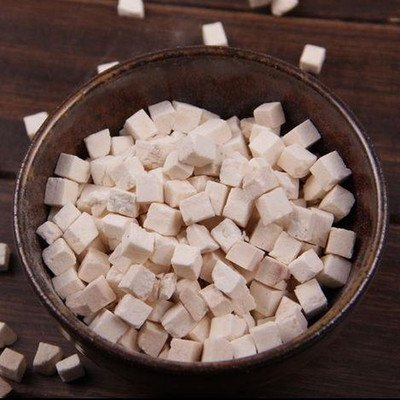
【Scientific Name】茯苓 (Fu Ling)
【Alias】云苓 (Yun Ling)
【Preparation】Take Poria, soak, wash, moisten, steam slightly, and then cut the skin and chunks or cut into thick slices and dry.
【Properties and Channels】Sweet, bland in flavor; neutral in nature. Enters the Heart, Lung, Spleen, and Kidney meridians.
【Functions and Indications】Promotes urination and reduces swelling, drains dampness, strengthens the Spleen, calms the mind. Used for edema, reduced urination, phlegm-dampness causing dizziness, Spleen deficiency with poor appetite, loose stools, anxiety, and insomnia.
【Dosage and Administration】Internal use: decoction, 10-15g; or in pills or powders, mixed with cinnabar for calming the mind.
【Actions and Effects】
Diuretic; drains dampness and reduces edema.
Poria skin: The outer skin of the Poria fungus, functions to promote urination and reduce edema.
Red Poria: The light red part after removing the outer skin, functions to drain damp-heat.
White Poria: The white part after cutting off the red Poria, cut into small cubes, functions to drain dampness and strengthen the Spleen.
Poria Spirit (Fu Shen): The center of white Poria with loose mycelium, cut into thin square slices, functions to calm the mind and settle the spirit.
Yun Ling skin: Drains dampness.
——Excerpt from the Chinese Medicine Information Query Platform

Compatible Formulas

Poria is a traditional Chinese herb that can be used in congee or combined with other herbs for decoction. It is beneficial for reducing swelling, strengthening the Spleen, harmonizing the middle, and calming the mind, specifically as follows:
First, its Spleen-strengthening effect can be enhanced by cooking it with Job’s tears (Yi Yi Ren), jujube (Da Zao), longan (Long Yan), goji berries (Gou Qi Zi), and red beans (Hong Dou) to make congee, which is very beneficial for tonifying Qi and blood, strengthening the Spleen, calming the mind, and eliminating internal dampness;
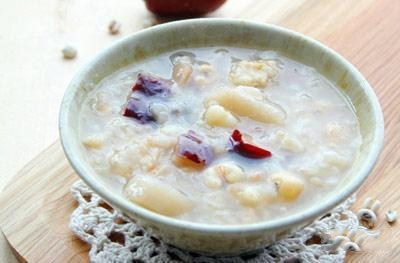
Second, for its calming effect, it can be used in combination with other herbs such as Biota seed (Bai Zi Ren), sour jujube seed (Suan Zao Ren), Angelica (Dang Gui), and Chuanxiong (Chuan Xiong);
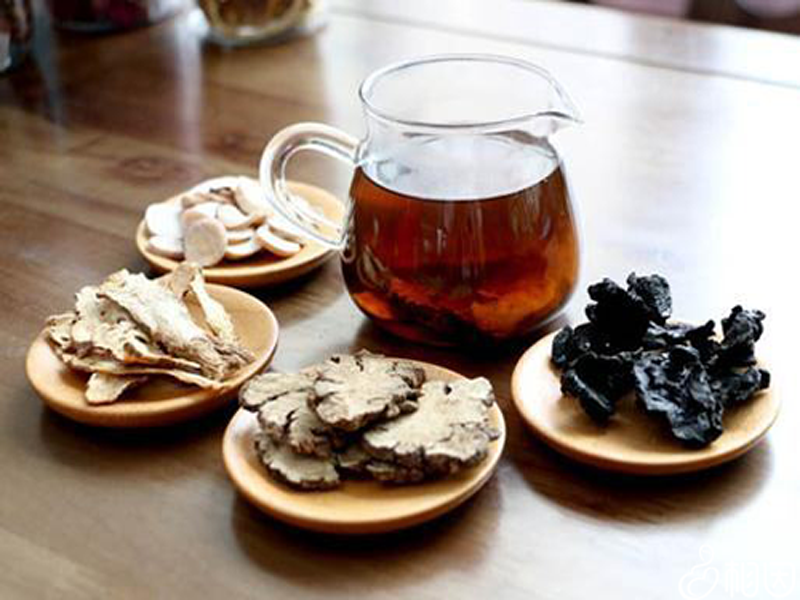
Third, for treating edema, it can be combined with Alisma (Ze Xie), corn silk (Yu Mi Xu), cinnamon bark (Xiang Jia Pi), and Job’s tears (Yi Yi Ren) to make a decoction, which is particularly effective for promoting urination and reducing swelling;
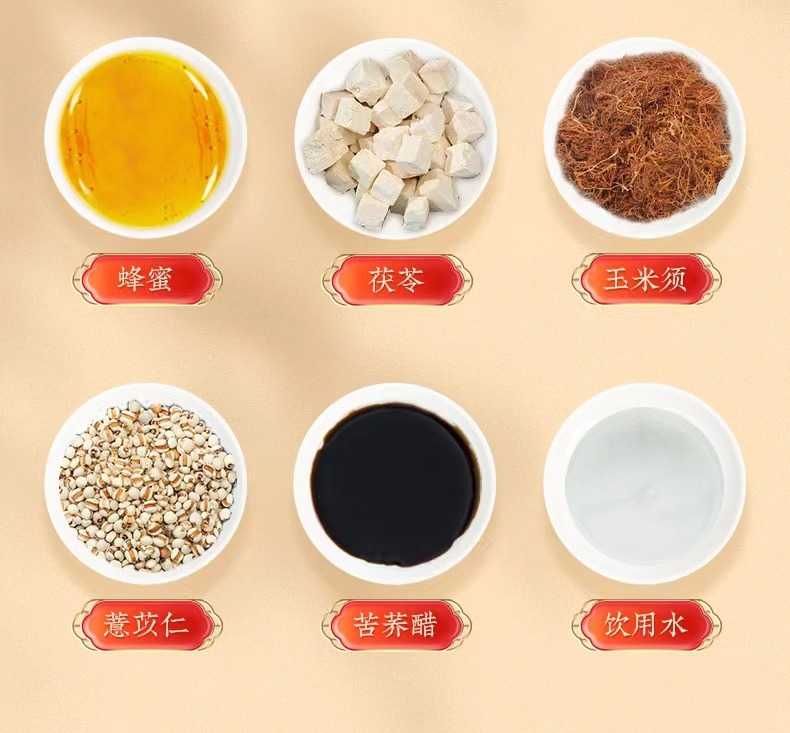
Fourth, when used with Bai Zhu (White Atractylodes) for infusion, it is particularly effective for those with dampness in the body.
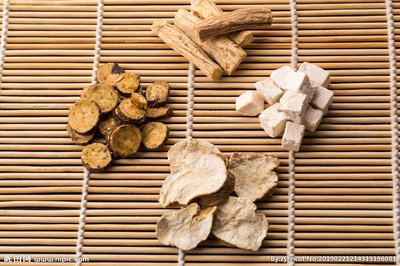
【Precautions】
Poria is an excellent herb for both treating diseases and promoting health, but it should be used cautiously in patients with Yin deficiency, no damp-heat, deficiency-cold, or Qi deficiency with sinking.
(Some content sourced from the internet; if there is any infringement, please contact for removal)
Editor: Yang Zhonghai
Proofreader: Yang Juan
Reviewer: Yang Wenzhong
